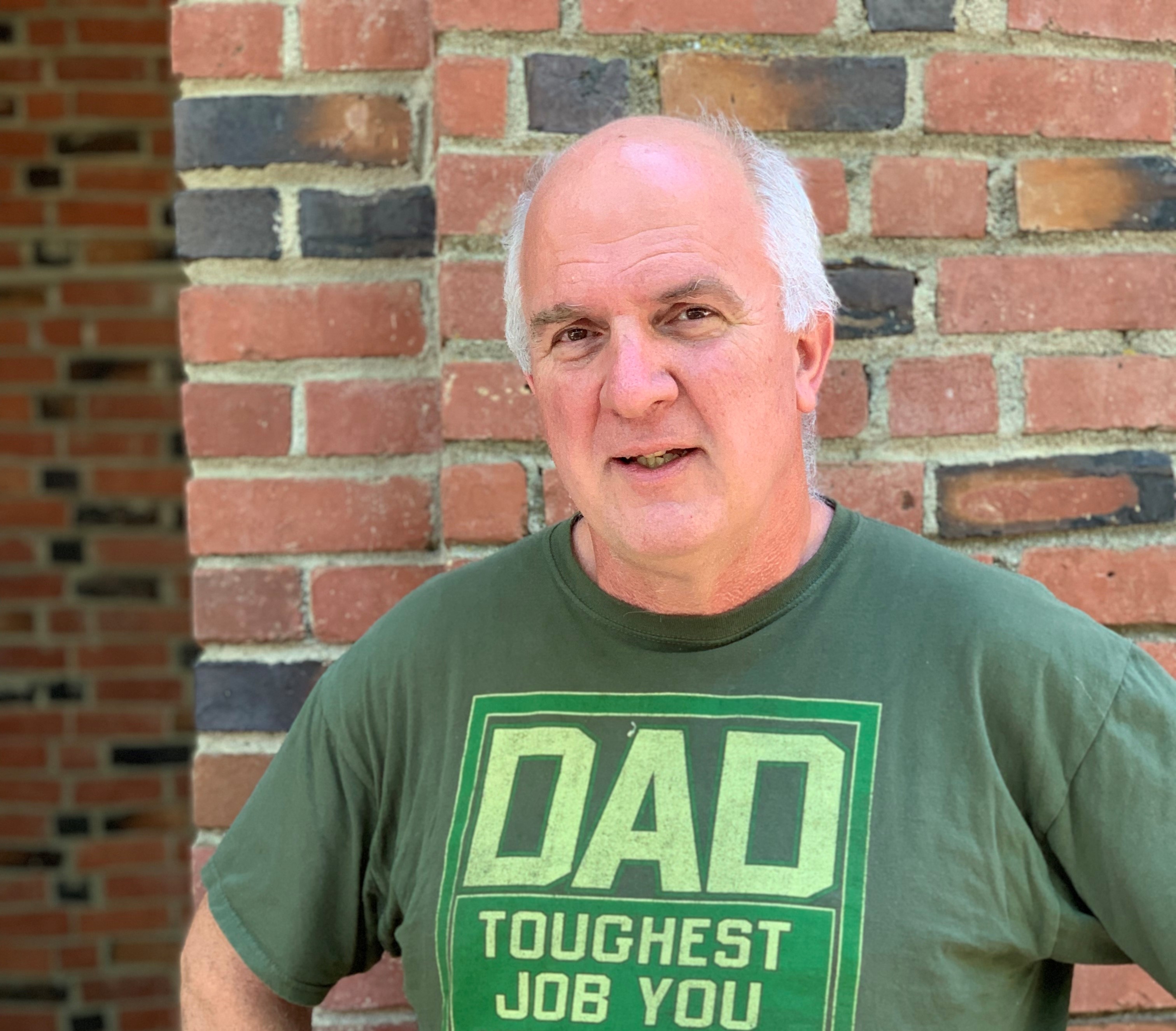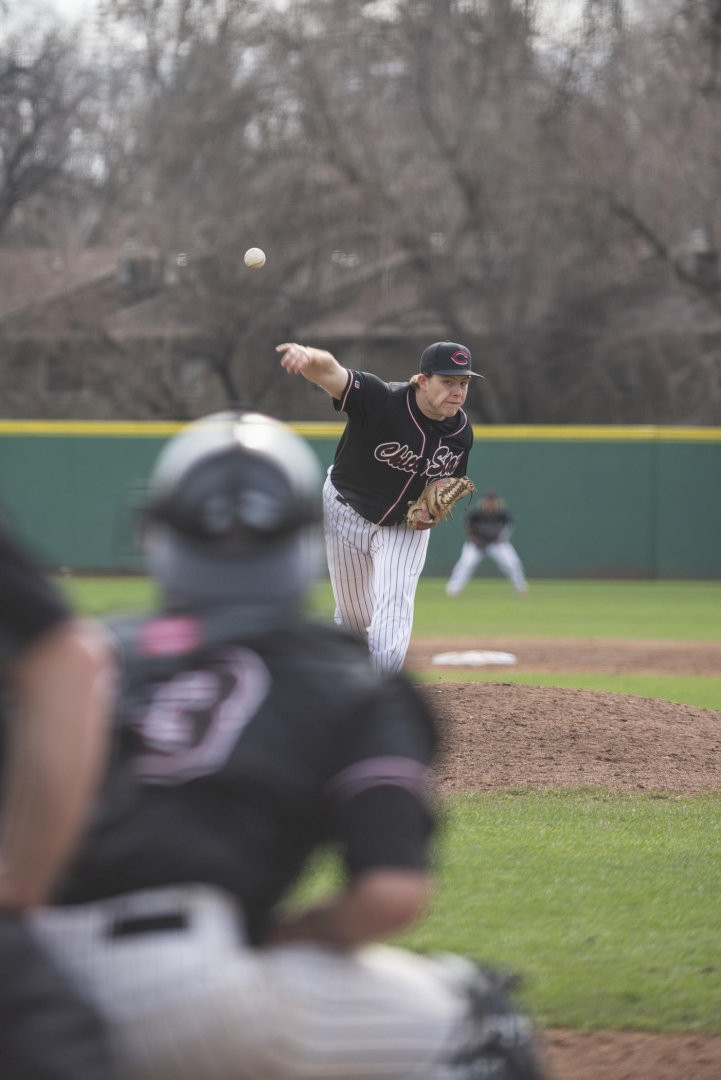5 Questions With Alumnus LeRoy Alaways

LeRoy Alaways provided crucial research about the dynamics of the curveball during his years of study in both applied mathematics and mechanical engineering. (Photo by Travis Souders/University Communications)
LeRoy Alaways (Applied Mathematics; Mechanical Engineering, ’85) went from operating an almond knocker in the orchards of Durham as a teenager and a first-generation college student to settling a long-running debate about the physics of the curveball, a breakthrough on display in the sport’s Hall of Fame. Now a self-employed engineering consultant and stay-at-home dad with twin daughters, Alaways has spent his years learning and teaching in the world of engineering, specifically in aerodynamics. He visited campus in June to share his experience and reflect on the key moments of his life—and how he’s dealt with other curveballs along the way.
Where did your love for learning come from?
I grew up in a family that didn’t go to college, and I was the sixth of seven kids. My mom didn’t emphasize college, but she did emphasize that I should do what I wanted to do. Well, I went to Chico High, and I lived on the other side of the Chico State campus, so I’d walk through it every day on the way home. I had constant exposure, and I’d go into the buildings and wander around. Nobody stopped me or seemed to mind that I was there. But it didn’t really satisfy any curiosity I had; it made it grow. In ’77 or ’78, a handful of my friends and I broke into Chico State’s computer mainframe, stole 250 passwords, and were the first official hackers here. Of course, the University caught us. But our penance was to sign up for a one-unit computer science course.
Mostly, the real thing I love about education is the challenge of it. That’s what life is about, is rising up to challenges. I had professors who knew how to push me in ways that I would take personally, and take to heart. If they felt something was easy for me, or that it wasn’t demanding my best effort, they would challenge me, and I loved that.
Why did you write your dissertation on the curveball, of all things?
It started off as a project: I wanted to design the world’s best pitching machine. I had some fundamental ideas what this machine would look like, and I wanted to build something different that didn’t use compressed air. But I couldn’t get past one part: Every time I tried to dig in to research how the machine should work, I came back to the same conclusion: I needed to know how the ball works before I could figure out how the machine works. But building a machine is a PhD, and knowing the aerodynamics of the ball is another PhD. I chose to focus on the ball.

How did you deal with challenges you faced as a first-gen student?
I had no idea where college was going to lead. My family didn’t know where it was going to lead. But all of a sudden, this door opens up, and all the education behind it is available to me. I went through that door, and one of the biggest things is that this campus said, “You’re welcome here.”
I think there are some things I missed. In high school, I probably had the grades to go to a different college, but I knew Chico State, and I didn’t try elsewhere. That was partly because that whole experience is something I didn’t know much about. But I was fortunate that Chico was a great school for me.
I converted my parents’ garage into an apartment and didn’t live on campus, so that I could save some money, but I didn’t get to network the way other freshmen could as part of their college experience. All these things felt like new territory, there are probably things that I wish I could do over for the experiences. But then I wouldn’t have the ones I did.
What was the most important part of your education?
My hands-on experience with the farm and here at the University were just amazing, and I was fortunate to get a head start doing it at a young age. In the orchards, there was a de-rocking machine, and getting hands-on with that sort of became how I would approach engineering projects later in my life. This machine rocks a ton, and uses air and blows things around—it’s a big, scary machine when you’re 13. My boss walks over, sticks his arm in the middle of the thing, shakes it around and pulls a rock out, and then tells me to do it. I tried it, and it was scary, but you grab the rock, and get a sense of how things are moving in there, and you learn by doing. For me it’s been important to take that step and find out, “Oh, now I know how this works.”
How did you develop your confidence in your work?
In college, experiments were big, grandiose projects. They seemed scary at first, but I always thought, “I could do that.” I had a head start on developing that courage. I tried to look at every challenge as a puzzle that could be put together, and I tried to always convince myself I was capable of doing it. Education gives you experience, and experience gives you the courage to do better.


